Advertisement
Follow these steps and guidelines to ensure a safe and uneventful road trip.
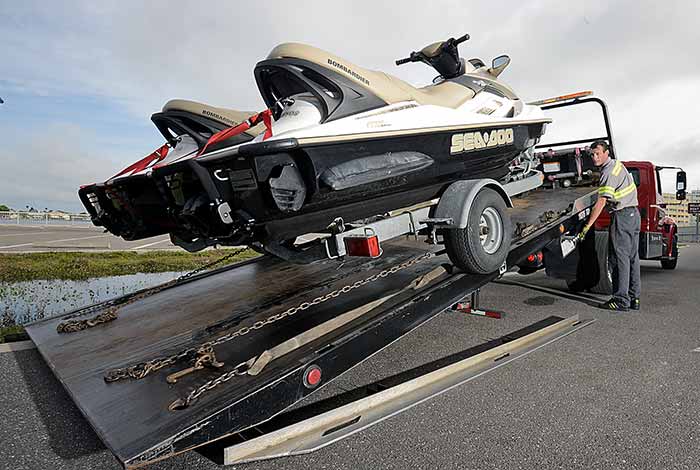
It didn't have to be this way. A little planning and preparation can keep your trailer off the side of the road. (Photos: Jason Arnold)
When a trailer and tow vehicle are set up properly and the driver uses the right precautions and drives defensively, towing a trailer can be reasonably incident free. There are many thousands of experienced boaters — including yours truly — who've towed for decades, and for hundreds of thousands of road miles, with little if any, drama. Here's how it's done.
Planning Is Key
There's no substitute for good preparation before a towing trip. Even experienced trailer pros know that if something's off — if tire pressure is low, if a light is out on the trailer, if the driver didn't get enough sleep — it will put undue stress on the person behind the wheel The key is to get the details right and minimize driver stress so you're able to handle unforeseen situations more capably. Start with the tow vehicle and trailer:
- Your tow vehicle and trailer should be matched properly. Don't overload the trailer or tow a load that's too much for your vehicle.
- Make sure your tow vehicle's hitch should be bolted securely to the frame, and it shouldn't be rusty or otherwise compromised.
- Your trailer's weight should be balanced fore and aft and side to side. The trailer's tongue weight should be between 5 percent and 10 percent of the gross trailer weight. If in doubt, measure it on a scale. (For more details, see "Tongue Weight DIY".)
- The cargo in your tow vehicle should be similarly balanced. If the rear of the vehicle and the tongue of the trailer are sagging, the entire package will handle poorly, steer badly, and sway dramatically.
- Your trailer's running gear should be prepped, ready, and working properly. This means the tires should have good tread, aren't weathered or cracking, and are inflated to the correct pressure. Tire pressure is extremely important. Low tire pressure causes overheating of the tire sidewall and leads to failure. Check them before and during your trip and every 100 miles.
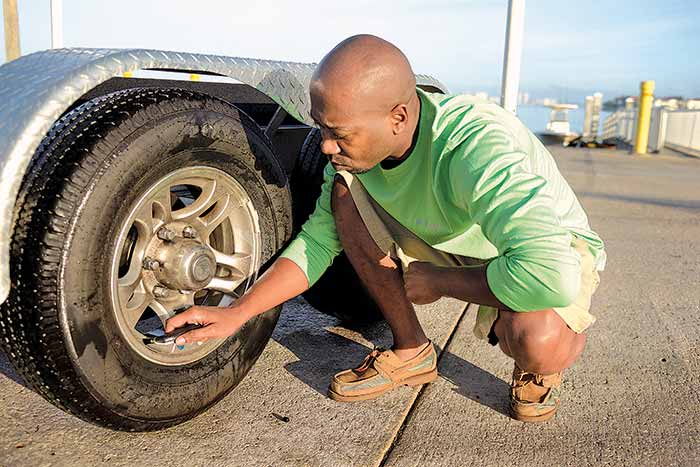
Check your tire pressure before setting off.
- The wheel bearings and grease should be fresh and ready for the trip. (See "12 Steps To Repack Or Replace Your Trailer Tire Bearings") The axle and springs should be in good shape and adequately support your boat. The trailer frame, bunk supports, and bunks should be solid and support the boat properly.
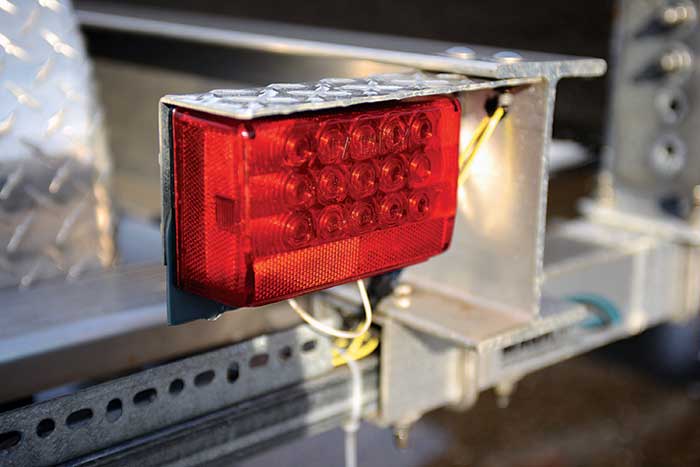
Verify your lights are working properly.
- The trailer lights should all work correctly and have a solid ground connection. Don't use the hitch ball as the ground!
- The trailer brakes, if your trailer has these, should be in operating condition. If your boat and trailer's total load dictate the need for brakes (generally 3,000 pounds is the cut off), and yours are missing or not functional, then don't tow.
- The winch, winch strap, tongue jack, and coupler should all be in working order.
- The boat should be properly tied down with straps of adequate breaking strength.
- The boat should be retained with an emergency chain at the bow eye to keep it on the trailer should the winch and tie-down straps break.
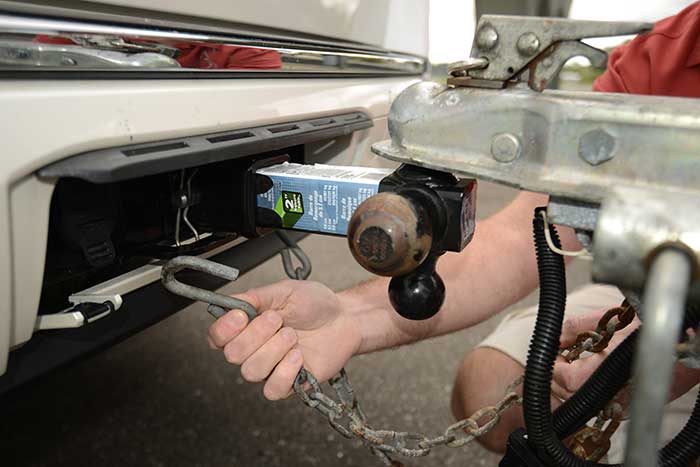
Double check that your safety chains are in place.
- The safety chains should be in good condition and adequately sized to hold the trailer should the coupler become detached. Cross the chains under the tongue and connect them securely to the tow hitch's safety chain loops.
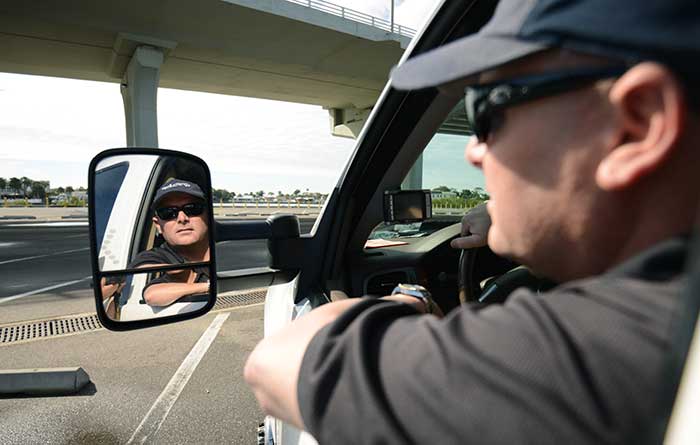
Consider adding bigger side-view mirrors to your tow vehicle for better visibility.
- Last, but definitely not least, have side mirrors, either factory or added on, that are large enough for you to see your boat and trailer and still see the traffic around you. Adjust them for best all-round visibility before you drive.
